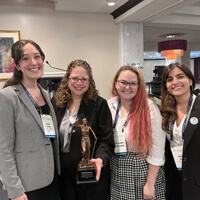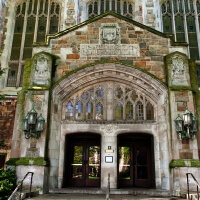Private Enforcement and Article II
Private enforcement is under attack. In the face of adventuresome statutes that empower private plaintiffs to act as roving bureaucrats, scholars have argued that some private enforcement schemes may be unconstitutional delegations of executive power. That theory is seeing a resurgence in the courts. Taking cues from the Supreme Court’s standing jurisprudence, Eleventh Circuit Judge Kevin Newsom recently stated that “Article II’s vesting of the ‘executive Power’ in the President . . . prevents Congress from empowering private plaintiffs”—including those challenging accommodations for compliance with the Americans with Disabilities Act—“to sue for wrongs done to society in general.” And in three recent cases, the Supreme Court has flirted with a similar approach when considering whether private relators can represent the interest of the United States in civil litigation (Polansky v. Exec. Health Res., Inc.), whether states may deputize private individuals to enforce an anti-abortion statute (Whole Woman’s Health v. Jackson), and whether a state can permit private citizens to challenge labor-code violations on behalf of their colleagues (Viking River Cruises, Inc. v. Moriana). Beneath each case lurks the same conundrum: How far can legislatures extend private enforcement before running afoul of Article II?
This Article refutes the emerging argument, which we term the “Article II Challenge,” that the Constitution should be understood to prohibit private enforcement of the law for public wrongs. Applying a novel, mixed-method study of private rights of action—comprising a quantitative analysis applying large language models, an original historical analysis, and a cross-doctrinal mapping—this Article offers a unified understanding of private enforcement and its constitutionality, not just through the cramped lens of standing, but as an independent mechanism of law enforcement in our constitutional structure. We argue that private enforcement can violate Article II only when it amounts to a criminal prosecution, enforces governmental property interests, or crowds the executive out from enforcement entirely—and even then, only under certain conditions. This leaves the vast majority of private enforcement schemes untouched.
About the Public Law Workshop
Michigan’s Public Law Workshop provides an opportunity for faculty and students from across the University to enjoy weekly presentations by leading scholars producing current work on topics ranging from constitutional law and administrative law to international law, statutory interpretation and beyond. Professors Julian Mortenson and Maureen Carroll organize the workshop. If you would like to receive workshop announcements, please contact Alex Wroble ([email protected]) and ask to have your name added to the workshop’s email list.






